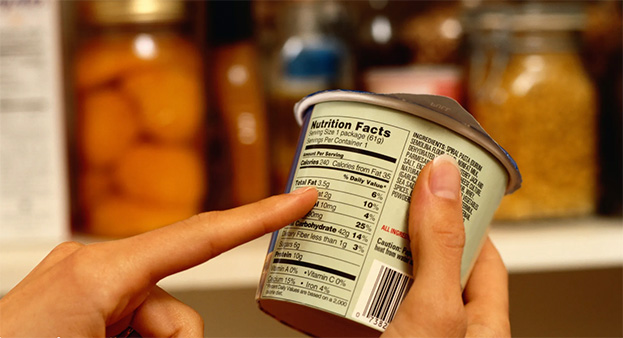In the modern diet, sugar is everywhere. It’s in your morning coffee, your mid-day snacks, and even in foods with clever but misleading ‘healthy’ branding that you may think are good for you. It’s no surprise then that the average person in the UK consumes more than 2 to 3 times the recommended amount of sugar.
The pervasive presence of sugar has profound implications on your health, increasing the risk of metabolic disorders, cardiovascular and liver disease, as well as affecting the gut and cognitive function.
Understanding its impact through the lens of functional medicine offers a comprehensive view of how sugar affects our bodies and practical steps and strategies you can follow to mitigate its negative effects on your health.
It is estimated that a record number of people in the UK, more than 5.6 million, are currently living with diabetes.
The Biochemistry Of Sugar
Sugar, in its simplest form, is a type of carbohydrate that provides energy for the body. You are probably familiar with some of the various types of sugar such as glucose, fructose and lactose, however, not all sugars are created equal.
Natural sugars, found in fruits and vegetables, come with fibre vitamins, and minerals. In contrast, added sugars, are sugars that are added to food such as those found in processed foods and soft drinks. Often referred to as ’empty calories’, added sugars offer no nutritional benefits and can actually be harmful to your health.

What Is The Maximum Amount Of Sugar You Should Eat Per Day?
Added sugars are not necessarily problematic when consumed in moderation, however, the average person consumes 2 to 3 times more than the recommended amount, often without even realising, as added sugars are prevalent in many food products or disguised with less familiar names.
Every individual has their own unique biochemistry and medical history which means their relationship with and tolerance to sugar will vary, however the UK government recommends that free sugars – sugars added to food (such as sweets, cakes, biscuits) or drinks (such as sodas and certain juices), and sugars found naturally in honey, syrups, and unsweetened fruit and vegetable juices, smoothies and purées – should not make up more than 5% of the calories you get from food and drink each day. So what does this mean?
- For adults, no more than 30 grams of sugar per day (roughly 7 sugar cubes).
- For children aged 7-10, no more than 24 grams of sugar per day (roughly 6 sugar cubes).
- For children aged 4-6, no more than 19 grams of sugar per day (roughly 5 sugar cubes).
To put that into context, a teaspoon of sugar in a cup of tea is around 4 grams, a standard-sized 48g Snickers bar in the UK contains 22 grams of sugar, while a typical 330ml can of Coca-Cola contains 35 grams of sugar.

How Does Sugar Impact Metabolic Health & Type II Diabetes?
One of the most well-documented effects of excessive sugar consumption is its link to metabolic syndrome, a cluster of conditions that include increased blood pressure, high blood sugar, excess body fat around the waist, and abnormal cholesterol levels. These conditions collectively raise the risk of heart disease, stroke, and type 2 diabetes and obesity. A study published in the Journal of the American Medical Association found that individuals consuming 17-21% of their calories from added sugar had a 38% higher risk of dying from cardiovascular disease compared to those who consumed 8% of their calories from added sugar.
Consuming excessive amounts of sugar, particularly from refined sources, leads to spikes in blood glucose levels. The body responds by producing insulin to help cells absorb this glucose. Over time, consistently high sugar intake can lead to insulin resistance, where cells become less responsive to insulin. This is a key factor in the development of type 2 diabetes.
Additionally, your pancreas, which is the organ that produces insulin, is put under more stress when you consume a high-sugar diet. Over time, it can become overworked and less efficient at producing insulin, further contributing to the development of diabetes.
How Does Sugar Impact Cardiovascular Disease?
High sugar consumption is also a significant contributor to cardiovascular diseases. Excessive sugar intake can cause elevated blood pressure and chronic inflammation, both of which strain the cardiovascular system.
Additionally, diets high in sugar can also lead to increased levels of triglycerides, a type of fat found in the blood that contributes to plaque formation, which is a risk factor for heart disease.
Studies have shown that individuals who consume a high amount of added sugars are more likely to experience heart disease, regardless of their overall diet and lifestyle. This highlights the importance of reducing sugar intake not only to manage weight and diabetes risk but also to maintain heart health.
Too much added sugar can be one of the greatest threats to cardiovascular disease.

How Does Sugar Cause Inflammation And Chronic Disease?
Sugar also plays a significant role in activating inflammatory pathways, leading to chronic low-grade inflammation, which is a well known precursor to many chronic diseases such as diabetes, cardiovascular disease, and arthritis. Oxidative stress caused as a result of inflammation damages cells and tissues, which can exacerbate insulin resistance and contribute to the onset of type 2 diabetes.
Additionally, when you consume sugar, especially in large amounts, it can lead to the production of advanced glycation end products (AGEs). AGEs are harmful compounds that form when protein or fat combine with sugar in the bloodstream, and they can trigger inflammatory processes that damage tissues and organs.
How Does Sugar Affect Liver Health?
Sugar, particularly fructose, has a unique impact on liver health. Unlike glucose, which is metabolized by every cell in the body, fructose is processed primarily in the liver. High intake of fructose can lead to fatty liver disease, also known as non-alcoholic fatty liver disease (NAFLD).
This condition occurs when excess fat builds up in the liver, leading to inflammation, liver damage, and potentially cirrhosis or liver cancer over time. Studies have shown that high fructose consumption, commonly from sugary drinks and processed foods, is a major driver of NAFLD.
NAFLD can lead to liver inflammation and liver damage, resulting in a more aggressive disease called non-alcoholic steatohepatitis (NASH) which can ultimately progress to scarring of the liver (cirrhosis), liver cancer, and liver failure.
How Does Sugar Impact Gut Health?
Excessive sugar consumption profoundly impacts gut health, disrupting the delicate balance of the microbiome—the community of microorganisms living in our intestines.
High sugar diets, especially those rich in refined sugars and high-fructose corn syrup, can lead to an overgrowth of harmful bacteria and yeast, such as Candida. This imbalance, known as dysbiosis, can impair digestion and nutrient absorption, leading to symptoms like bloating, gas, and diarrhea. Furthermore, high sugar intake can reduce the diversity of beneficial bacteria, which are crucial for maintaining a healthy gut lining, supporting the immune system, and producing essential nutrients like short-chain fatty acids.
Chronic sugar consumption also promotes inflammation in the gut, increasing the risk of leaky gut syndrome, where the intestinal lining becomes more permeable, allowing toxins and undigested food particles to enter the bloodstream and trigger systemic inflammation.
Does Sugar Affect Cognitive Decline And Mental Health?
Emerging research suggests that high sugar intake can also adversely affect cognitive function and mental health. Chronic consumption of high-sugar diets is linked to impaired memory and an increased risk of neurodegenerative diseases such as Alzheimer’s.
Furthermore, high sugar consumption is associated with an increased risk of depression and anxiety. The rapid spikes and drops in blood sugar levels can cause mood swings and fatigue, which over time, can contribute to the development and exacerbation of mental health disorders.
Book a Free Discovery Call
Discuss your health concerns with one of our expert practitioners and find out how personalised functional medicine can get your health on the right track.
How To Reduce Sugar Intake: Functional Medicine Strategies
The good news is there are many simple and effective actionable steps you can take to reduce your sugar intake by yourself at home, as well as with the help of a functional medicine specialist.
Functional medicine utilises a holistic approach to reducing sugar intake and dealing with its associated health conditions. This comprehensive approach includes dietary modifications, targeted supplementation, lifestyle interventions, stress management techniques and functional testing. By addressing the root causes of high blood sugar and associated illnesses, functional medicine aims to restore optimal health and prevent the progression of chronic diseases.
1. Nutrition & Lifestyle
Personalised nutrition is one of the fundamental pillars of functional medicine. Working with a specialist is a really effective way of educating yourself and reprogramming your relationship with food as so many of our food and lifestyle choices are formed through habit and often acted out in a kind of autopilot mode.
In one-to-one consultations, a functional medicine practitioner will identify areas of your diet and and aspects of your lifestyle that are contributing to overconsumption of sugar and provide a tailored plan that provides healthy alternatives. Some of the key principles of this approach are:
- Nutritional Interventions: Reducing sugar intake by modifying your diet is a key strategy in managing and preventing chronic diseases. Functional medicine practitioners carefully assess your diet and health, and recommend dietary changes emphasising whole, nutrient-dense foods such as vegetables, fruits, lean proteins, and healthy fats, as well as targeted supplements to support metabolic health and reduce inflammation.
- Lifestyle Modifications: Incorporating regular physical activity, stress management techniques, and adequate sleep, all of which are crucial for maintaining healthy blood sugar levels and reducing inflammation.

2. Monitoring & Functional Testing
Functional testing can be a powerful tool to assess and manage high blood sugar, insulin sensitivity, inflammatory markers and associated illnesses by providing detailed insights into an individual’s metabolic state, hormone balance, and potential underlying causes of dysglycemia. Here are some of our most popular functional testing options:
- Comprehensive Metabolic Panel: Measures blood glucose levels and provides information on the functioning of kidneys, liver, and electrolytes. This test helps identify abnormalities in glucose metabolism, kidney function, and liver health, which are crucial in managing diabetes and metabolic syndrome.
- Inflammatory Markers: Chronic inflammation is a key factor in the development of insulin resistance and type 2 diabetes. Tests for inflammatory markers, such as C-reactive protein (CRP) and interleukin-6 (IL-6), can help assess the level of inflammation in the body and guide anti-inflammatory interventions.
- Gut Health Assessment: Research has shown a strong link between gut health and metabolic diseases. Functional tests like stool analysis can evaluate gut microbiota composition, inflammation, and intestinal permeability (leaky gut). Improving gut health through diet and probiotics can positively influence blood sugar control.
- Lipid Panel: A lipid panel measures cholesterol and triglyceride levels. High triglycerides and low HDL cholesterol are components of metabolic syndrome and are associated with increased cardiovascular risk in individuals with diabetes. This panel helps in assessing cardiovascular risk and guiding dietary and lifestyle modifications.
- Nutrient Deficiencies: Deficiencies in certain nutrients, such as magnesium, vitamin D, and chromium, can affect blood sugar regulation. Functional testing for these nutrients helps identify deficiencies and allows for targeted supplementation to improve glucose control and insulin sensitivity.
- Thyroid Function Test:Thyroid dysfunction can influence blood sugar levels and insulin sensitivity. Testing thyroid hormones (TSH, Free T3, Free T4) helps in identifying hypothyroidism or hyperthyroidism, which can impact glucose metabolism and overall health.
For more information on our range of functional tests, how they work and how you can book a test, visit our Functional Medicine & Testing page.
Book a Free Discovery Call
Speak to one of our trusted practitioners to find out how we can help you reduce your sugar intake, as well as manage a variety of health conditions associated with overconsumption of sugar.

Practical Steps To Reduce Sugar Intake
1. Learn To Identify Hidden Sugars
Reading and understanding food labels when you are shopping for groceries is key. Sugar comes in many forms, and manufacturers often use different names to disguise its presence. Keep an eye out for:
-
- Sucrose: Table sugar
- High Fructose Corn Syrup (HFCS): Common in sodas and processed foods
- Fructose: Fruit sugar
- Glucose: Blood sugar
- Dextrose: Corn sugar
- Maltose: Malt sugar
- Honey, Maple Syrup, Agave Nectar: Natural sweeteners, but still sugars
Some other less obvious names to look out for are:
-
- Molasses
- Barley Malt
- Rice Syrup
- Evaporated Cane Juice
- Cane Sugar
- Fruit Juice Concentrate
2. Serving Size Matters
When buying food, check the amount of sugar that is present in its ingredient list. Ingredients listed earlier on a food product’s label are usually present in higher quantities. Remember the recommended daily sugar allowance for adults is no more than 3o grams.
Another tip is to check the serving size on the label. Calorie counts and other nutritional information per serving can be deceptive if the serving size is much smaller than what people typically eat. This can mislead you into thinking the product is healthier than it actually is (or has less sugar) if they don’t multiply the values by the number of servings they consume .
3. Choose Natural Sweeteners
Opt for natural sweeteners like stevia, monk fruit, and small amounts of raw honey or maple syrup as alternatives to refined sugars. These have a much lesser impact on blood glucose levels.
4. Stay Hydrated
Sometimes, thirst can be mistaken for hunger or sugar cravings. Drinking plenty of water throughout the day can help manage cravings for sugary foods and drinks.

YOUR HEALTH. YOUR CHOICE.
At Nutrition Diets, our functional medicine approach considers your unique genetic makeup, diet, environmental exposures, lifestyle factors, and health history:
1) Expert one-to-one therapy
2) Personalised nutrition and lifestyle plans
3) Easy, at-home functional testing
By understanding and applying the principles of functional medicine, you can reduce your sugar intake in an effective and sustainable way that combats chronic disease and promotes long-lasting health.
We offer thorough clinical assessment and therapy via convenient online consultations. Getting started is simple and free so why not take charge of your health today with our evidence-based strategies?
